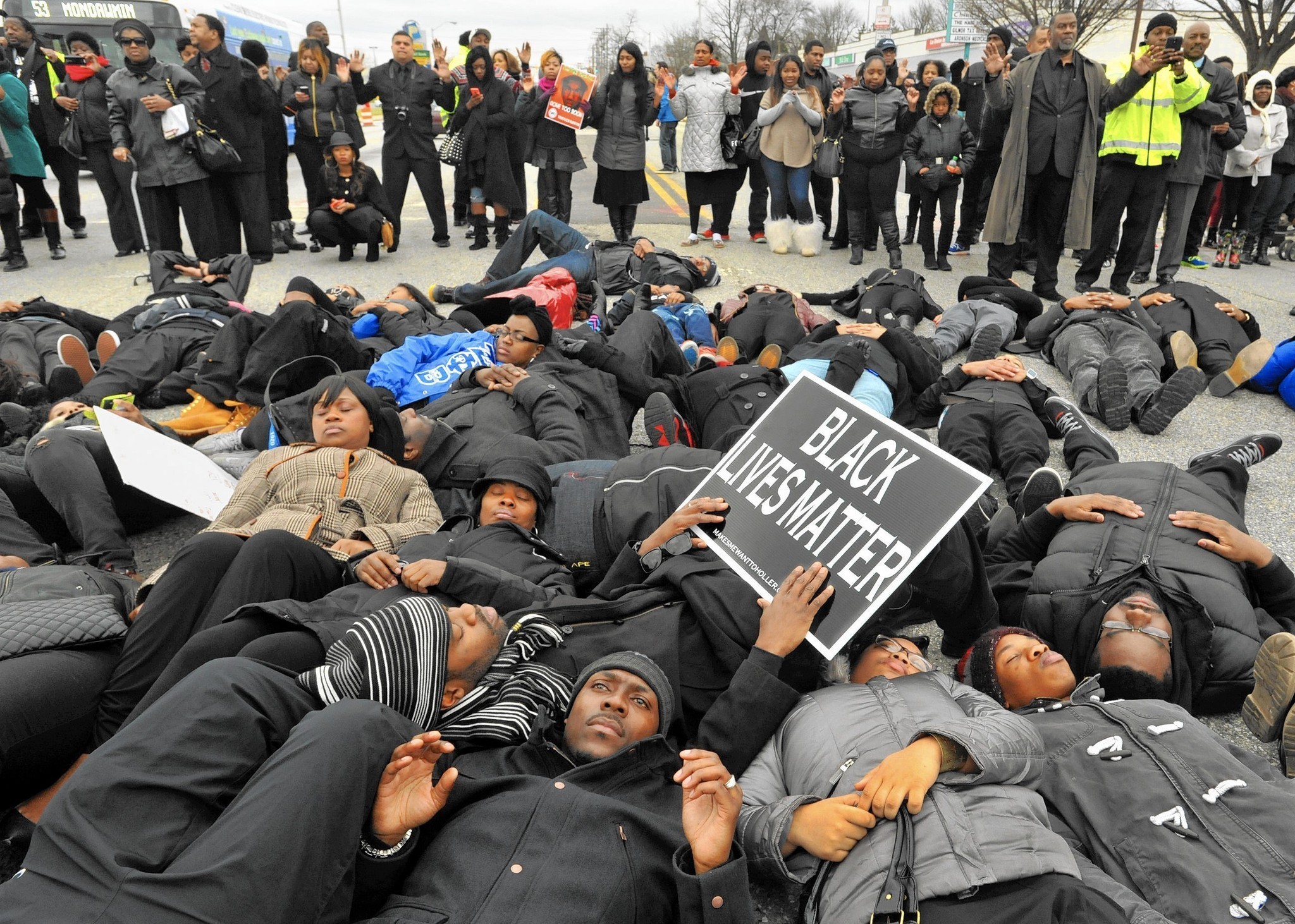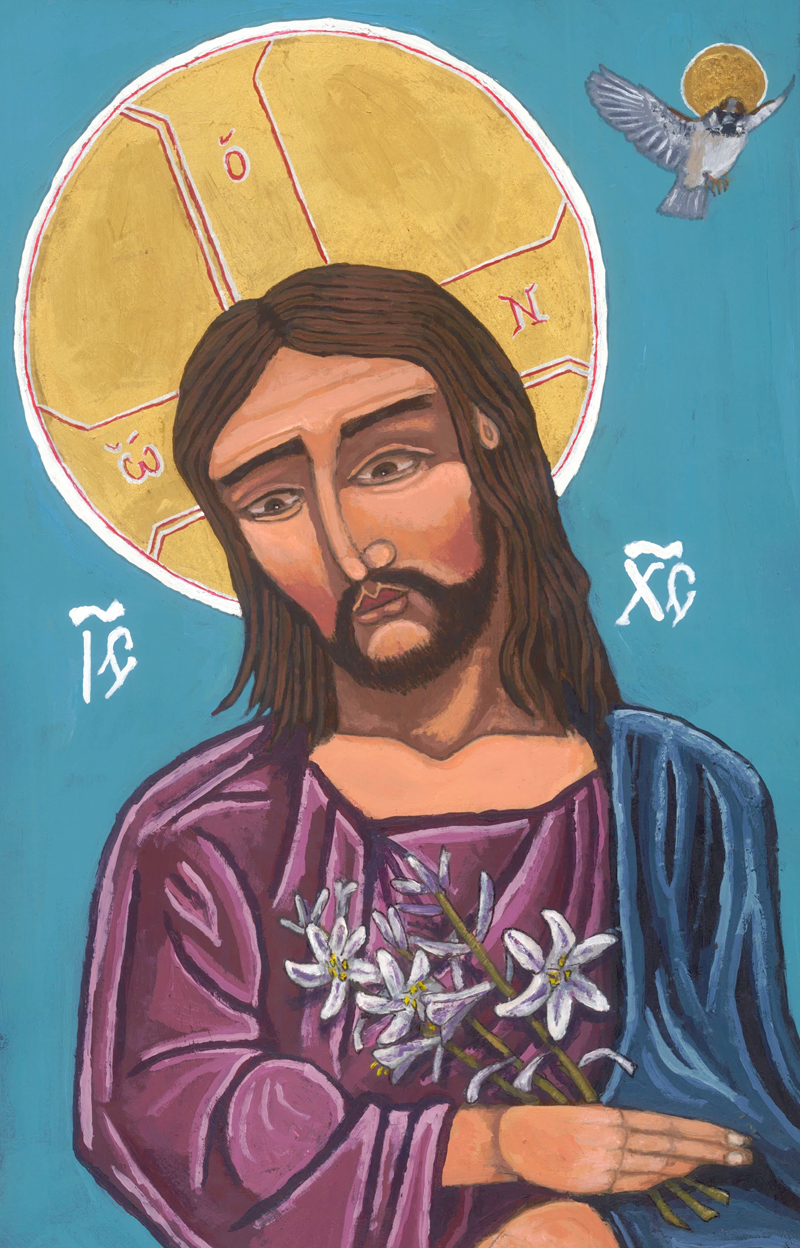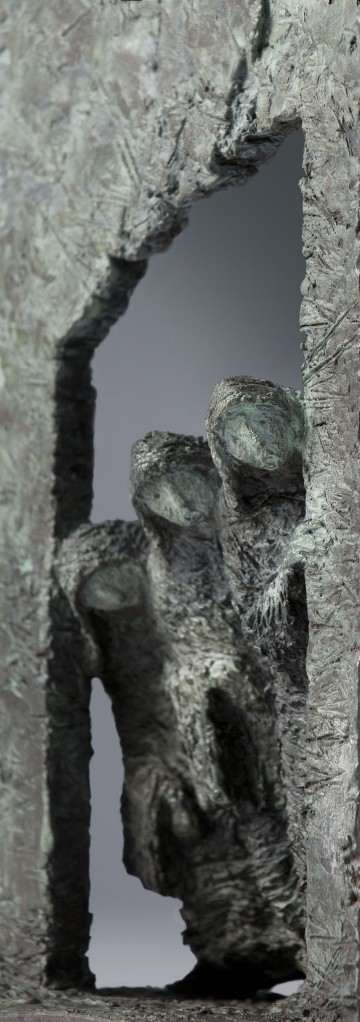Written for Trinity Lutheran Church, Valparaiso, IN | 7th Sunday after Pentecost | July 11, 2021
Readings: Amos 7:7-15; Mark 6:14-29
Click here to watch this sermon online!
Mark is the shortest Gospel. It doesn’t tell us anything about how Jesus was born. It doesn’t tell us any resurrection stories. Most of Jesus’ teachings and miracles are quick and to-the-point.
And yet in this story, the execution of John the Baptist — Mark gives us the details. The hot gossip about Herod marrying his brother’s ex-wife. A snapshot of Herod’s birthday party. A young princess dancing. A private meeting between mother and daughter. R-rated details about what happens to John’s head. Mark even gives us insight into what Herod is thinking and feeling — which is super rare in ancient writings in general and in Mark’s Gospel in particular.
This story would not make our Top 10 lists of Most Important Jesus Stories. We’d be more likely to include some of the parts that Mark left out: Christmas, Easter, the Beatitudes, the Prodigal Son.
So why does Mark give the execution of John the Baptist so much time? Why did Mark think this story was so important?
Like all of the gospels, Mark wants to help us know who Jesus is. And this story helps us know who Jesus is by showing us who Jesus is not — like in school, when we made compare-and-contrast charts. Mark wants us to see who Herod is and how he rules. Mark wants us to have gut-level reactions to Herod. Mark wants us to feel the kind of king that Herod is — like when we watch Batman, hear the Joker’s laugh, and get creeped out; or when we watch Frozen and see Hans reveal just how selfish and uncaring he really is, and it makes our stomachs turn. Mark wants us to have that kind of reaction to Herod, so that then we can decide whether we’d rather follow a king like him or a king like Jesus.
So let’s see what this story tells us about Herod.
It’s Herod’s birthday. And since he’s the ruler of a big chunk of Israel, he throws a big party and invites all the rich and powerful people of the region. The governors. The generals. The people with friends in high places. The people with money.
And they’re eating and drinking and having a good time, when Herod’s young daughter enters. We’re talking young — she could have been like, 12 years old.1 She starts to dance, and all eyes are on her. What do you imagine at this point? Is she doing a cute little tap-dance routine for the crowd, or is she swaying her hips and snaking her arms through the air?
The only thing Mark tells us about the dance is that it got the crowd so excited that Herod promises, in front of all these powerful people: “Ask for whatever you wish, and I will give [it to you]…even half of my kingdom.”
And the girl seems to understand that this is a big opportunity. So she huddles in a corner with her mother and asks for directions: “What should I ask for?”
And Herodias the queen seizes this chance to get exactly what she wants: her enemy, John the Baptist, dead.
So the girl rushes back to Herod, and — in front of all these powerful guests — cashes in on Herod’s offer. “I want you to give me at once the head of John the Baptist on a platter.”
And Herod is caught. According to Mark, Herod doesn’t want to kill John the Baptist. He recognizes that so many of his people revere John as a righteous and holy man. And Herod is intrigued himself — maybe John is a prophet sent by God. Seems like a bad move, both politically and spiritually, to have him killed.
And yet: Herod had made an oath. Publicly. In front of the most powerful people, the ones he had to constantly work with to get anything done in his kingdom, the ones whose support he needed to keep hold of power. What would they think of him if he now said, “Oh, haha, I was just kidding! I thought you’d ask for a new dress or something.”
Herod feels he has no choice. And so he sends a guard down to do the deed.
And that’s how a birthday party, a dance, and a frivolous oath led to the death of a man of God and a public leader.

I probably say this about the Bible too often, but: doesn’t that sound like something out of Game of Thrones?
What do you think about Herod after hearing that story again? What do you think about the way he uses his power? About how he let himself be manipulated? About how he decided to execute John the Baptist? Is he the kind of leader you would vote for?
What’s most shocking to me is the way he and the people around him treat human life.
There are some classic questions teachers like to ask in ethics or philosophy classes to try and explore questions of the value of human life. Questions like: if you’re on a boat, and it’s sinking, and you have the chance to save either your child or two strangers — who do you save? Or there’s the trolley problem, which you may have seen on The Good Place: you see a trolley heading down the track, where it’s about to run over five people. You can pull a lever and make the trolley switch tracks — but on that track, it will kill one person. What do you do?
I love the philosopher Immanuel Kant’s response to these questions: that there is no right answer. Because we might be tempted to use something like math to decide: it’s better that only one person would die, instead of five. But Kant argued: every single human life is infinitely valuable. It’s irreplaceable. It’s worth can’t be measured. If you put five human lives on one side of a scale and one human life on the other, the scale could only respond: “DOES NOT COMPUTE.”2
It reminds me of that strange parable Jesus told of a shepherd leaving 99 sheep behind to go search for the one (Matt. 18:10-14).
But Herod and Herodia and their guests — they come at human life from the opposite direction. They’re willing to extinguish human life just to save face. Just to hold on to a little power.3
But maybe that’s not very shocking. Isn’t this how we expect kings to act? Not just kings from those brutal ancient times — but the powerful people of today, too. We expect politicians will use policies that can save or ruin lives like bargaining chips. We expect that warfare will lead to civilian casualties. We expect the big-time CEOs to put profits over people. We’ve even learned to expect arguments about protecting vulnerable people during a pandemic. We are not surprised when we see exactly what the prophet Amos saw: the powerful “[selling] the righteous for silver, and the needy for a pair of sandals — they who trample the head of the poor into the dust of the earth, and push the afflicted out of the way” (Amos 2:6-7).
We expect it…but do we actually want it to be this way?
More importantly: does God want it to be this way?
Those are the kinds of questions that Mark leaves hanging in the air when he tells us this detailed story of Herod’s birthday party and the execution of John the Baptist.
And the answers Mark hopes we will find are waiting for us in the very next story: another gathering, another banquet. But this time Jesus is the host; Jesus is the one facing a public dilemma; we see how Jesus handles responsibility for human life. It’s the famous story of the feeding of the 5,000 with just five loaves of bread and two fish (Mark 6:30-46).
I hope you’ll be here or tune in next week to work through that much happier story together. But if you can’t, I encourage you to read that story yourself. Better yet, read it with someone else. Maybe especially with a kid or with a friend who’s not a “church person” — someone who will hear the story with fresh eyes. And ask as you read: What’s most important to Jesus? How does he lead?
The answers to those questions will give us a glimpse into who God is, how God created the world to be, and how God calls us to act as people of God.
Closing Prayer: God our provider, help us. It is hard to believe there is enough to share. We question your ways when they differ from the ways of the world in which we live. We turn to our own understanding rather than trusting you. Where else can we turn? Share with us the words of eternal life and feed us for life in the world. Amen.4
1 The Greek word used to describe the dancer in Mk 6:22 is korasion— translated in the NRSV as “girl.” It may be the diminutive form of the word kore (“girl”/”maiden”), making korasion closer to “little girl.” Jesus uses this word in Mark 5:41 to talk to the 12-year-old daughter of Jairus: “Little girl, get up!”
2 Immanuel Kant: “But man as a person…is exalted above all price. For…he is not to be valued merely as a means to the ends of other people, or even to his own ends, but is to be prized as an end in himself” (The Metaphysics of Morals). For more on this, see Matt McManus, “What is Human Dignity? Kant Sheds Light,” Merion West, 14 July 2018. Online: https://merionwest.com/2018/07/14/what-is-human-dignity-kant-sheds-light/ Accessed 12 July 2021.
3 These thoughts are inspired by Ched Myers, Binding the Strong Man: A Political Reading of Mark’s Story of Jesus, (Maryknoll: Orbis Books, 2003), p. 215-216. “The dilemma created by [Herod’s] oath is a parody on the shameless methods of decision-making among the elite, a world in which human life is bartered to save royal face.”
4 Prayer from Sundays and Seasons, (Minneapolis: Augsburg Fortress), from the liturgical texts for July 18, 2021. Accessed online.


